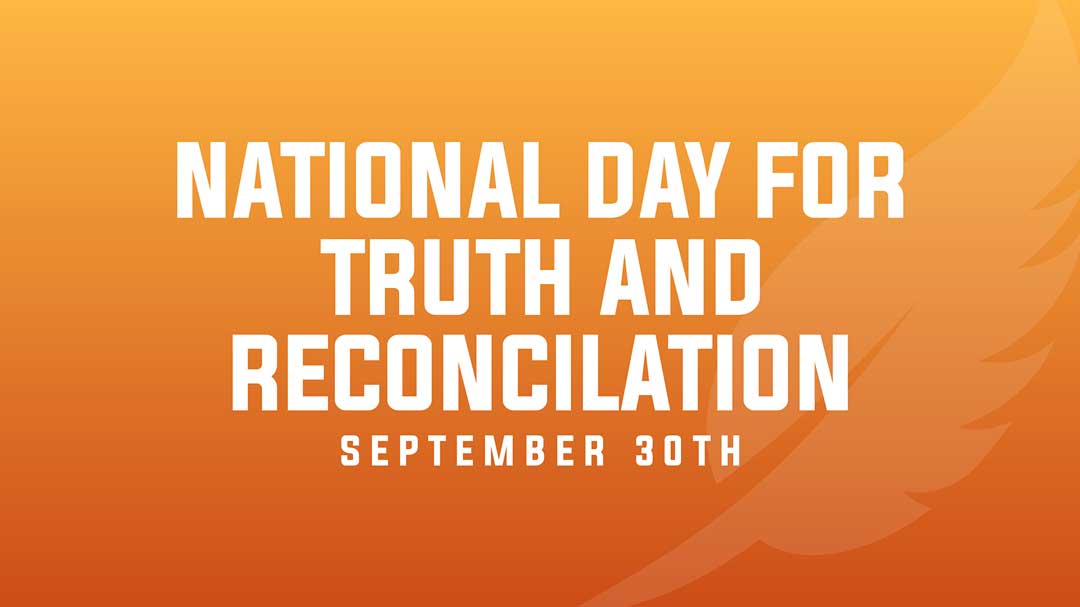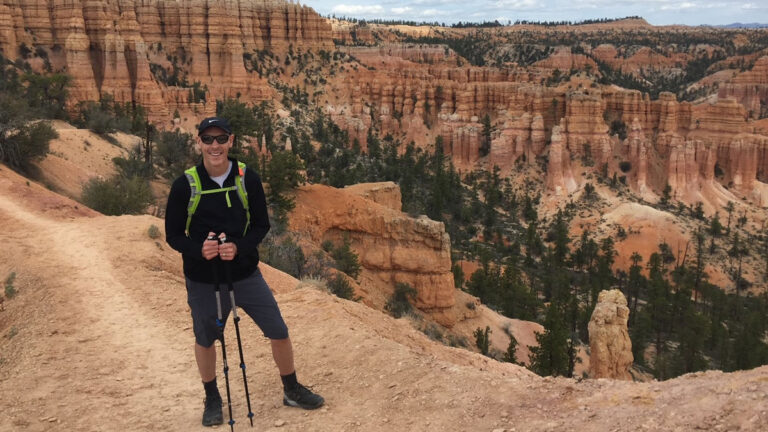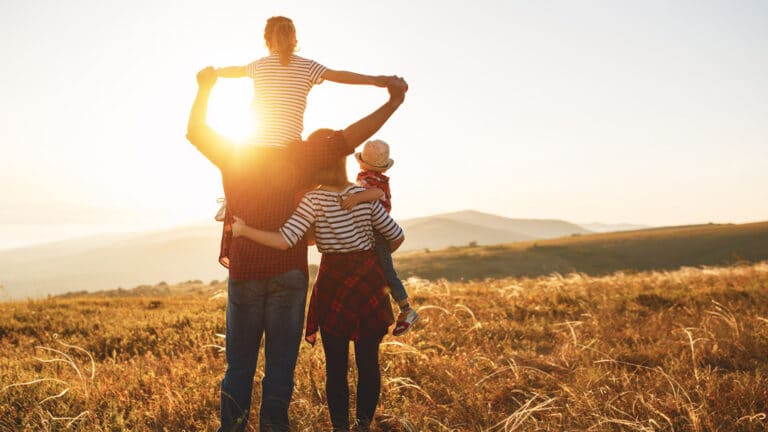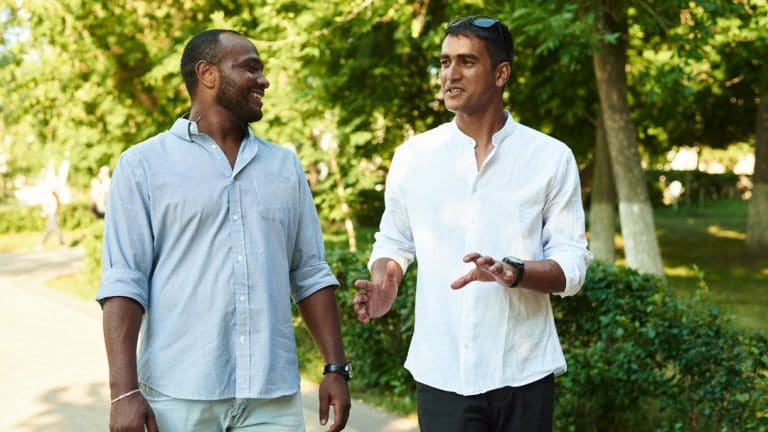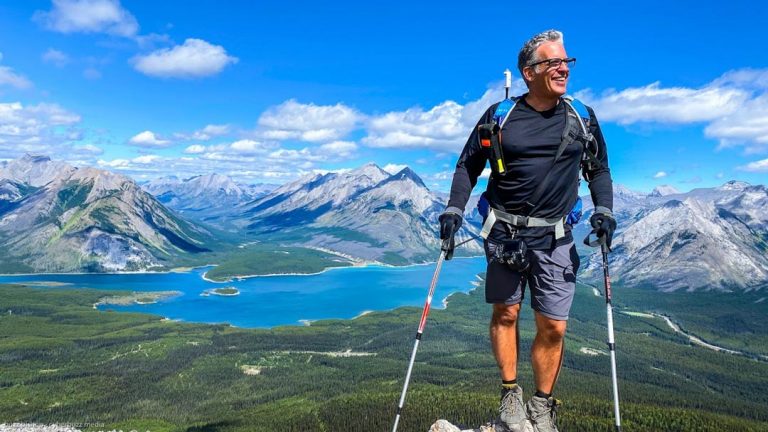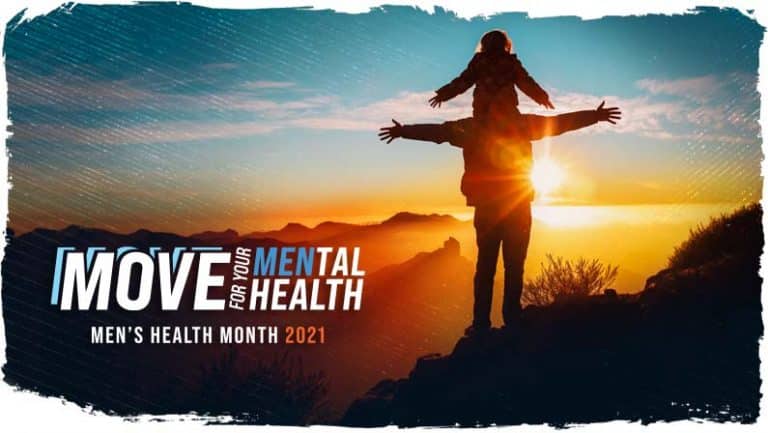LAST UPDATED: September 20, 2025
This article contains information and links related to residential schools. If you have been affected by residential schools and need emotional or crisis support, contact the 24-Hour Lamathut Crisis Line at 1-800-721-0066.
September 30 marks National Day for Truth and Reconciliation. It is a day to honour Survivors of residential schools, their families, and their communities, while acknowledging the ongoing impacts of intergenerational trauma.
Taking time to learn, reflect, and take action helps us move toward a more inclusive future and ensures we never forget the legacy of residential schools.
Here are eight ways you can engage in Truth and Reconciliation:
1. Read and Re-read the Truth and Reconciliation Commission’s 94 Calls to Action
The Truth and Reconciliation Commission announced 94 Calls to Action in 2015. These are concrete steps for governments, institutions, and all Canadians to help address the lasting impacts of the residential school system.
2. Learn About Indigenous History and the Residential School System
Knowledge is a powerful step toward reconciliation. Explore resources at your library, bookstores, and online.
Websites & Web Resources:
- Residential School History
- Indigenous Perspectives Education Guide
- The Residential School System
- Canada’s Commitment to Reconciliation
Books:
- The Inconvenient Indian by Thomas King
- Broken Circle: The Dark Legacy of Indian Residential Schools by Theodore Fontaine
- The Orange Shirt Story by Phyllis Webstad
- 21 Things You May Not Know About the Indian Act: Helping Canadians Make Reconciliation with Indigenous Peoples a Reality by Bob Joseph
- Standoff: Why Reconciliation Fails Indigenous People and How to Fix It by Bruce McIvor
Courses:
- Indigenous Canada (University of Alberta)
- Reconciliation Through Indigenous Education (UBC)
3. Identify and Acknowledge the Territory Where You Live
Learning whose land you live on is a step toward respect and recognition.
In meetings or gatherings, consider beginning with a land acknowledgement.
4. Listen and Learn
Attend community events, workshops, or talks by Elders and Knowledge Keepers. Listening to lived experiences is one of the most powerful ways to learn.
5. Attend a National Truth and Reconciliation Week Virtual Event
For Truth and Reconciliation week, the National Centre for Truth and Reconciliation (NCTR) will host virtual and in-person events under the theme “Remembering the Children.” Programs are available for students, educators, and the public.
Also, check local listings in your city for walks, ceremonies, and gatherings.
6. Explore Indigenous Voices
Whether you’re a TV watcher, a podcast listener, or a book reader, there are lots of options out there for you to hear from Indigenous peoples and creators. We’ve provided a few of each below to get you started:
TV Shows & Movies:
- Reservation Dogs
- Skindigenous
- Atanarjuat: The Fast Runner
- Beans
- nîpawistamâsowin: We Will Stand Up
- Falls Around Her
Podcasts:
- The Urbariginal
- Pieces
- Telling Our Twisted Histories
- Our Native Land
- Métis in Space
- Muddie Water: 1870, Homeland of the Métis
- Missing and Murdered
- The Henceforward
- MediaINDIGENA
Novels:
- Five Little Indians by Michelle Good
- Jonny Appleseed by Joshua Whitehead
- Indian Horse by Richard Wagamese
- Call Me Indian by Fred Sasakamoose
- Bone Black by Carol Rose
- Mamaskatch: A Cree Coming of Age by Darrel J. McLeod
- If I Go Missing by Brianna Jonnie
- Indians Don’t Cry: Gaawiin Mawisiiwag Anishinaabeg by George Kenny
- The Marrow Thieves by Cherie Dimaline
- A Day with Yayah by Nicola I. Campbell (a children’s book)
- When We Were Alone by David A. Robertson (a children’s book)
- Owls See Clearly at Night by Julie Flett (a children’s book)
7. Donate to Indigenous Non-profits
There are over 600 Indigenous non-profits you can support in Canada. Explore this list of organizations and find one to support in your community.
DUDES club, for example, has over 42 locations in BC. They work in communities with high Indigenous populations to promote men’s wellness, “build solidarity and brotherhood, and enable men to regain a sense of pride and purpose in life.”
8. Support Indigenous Creators and Businesses
Support Indigenous artists, designers, jewellers, restaurants, and other business owners by purchasing products, attending events, following social media accounts, sharing content, and recommending their products and works to friends and family.
Not sure if there are Indigenous-owned businesses near you? The Government of Canada has an Indigenous Business Directory where you can search by city or town and business type.
Follow Indigenous creators like @notoriouscree, @shinanova, @_aysanabee_, @jayroymakokis and @boslen.
What Indigenous non-profits, businesses, and creators do you follow and support? Let us know in the comments below!
Feeling off?
Start here.
Free tools to help you deal with stress, anxiety, and tough stretches.
